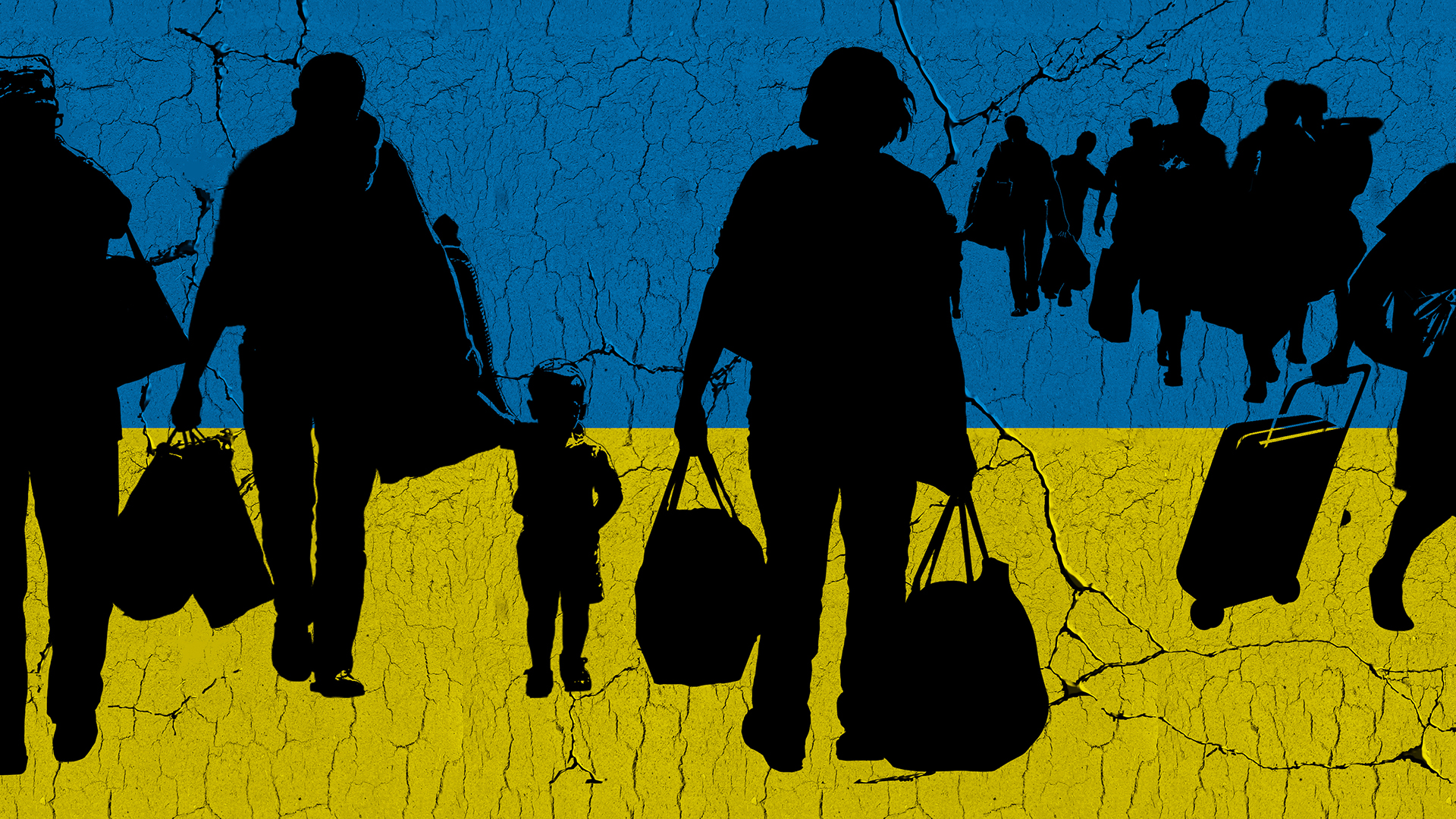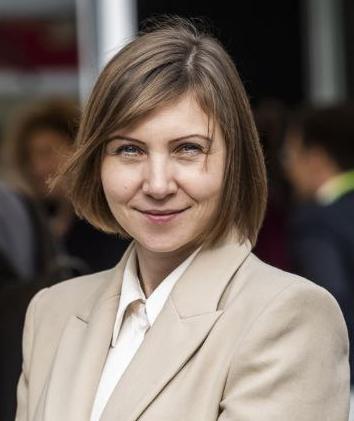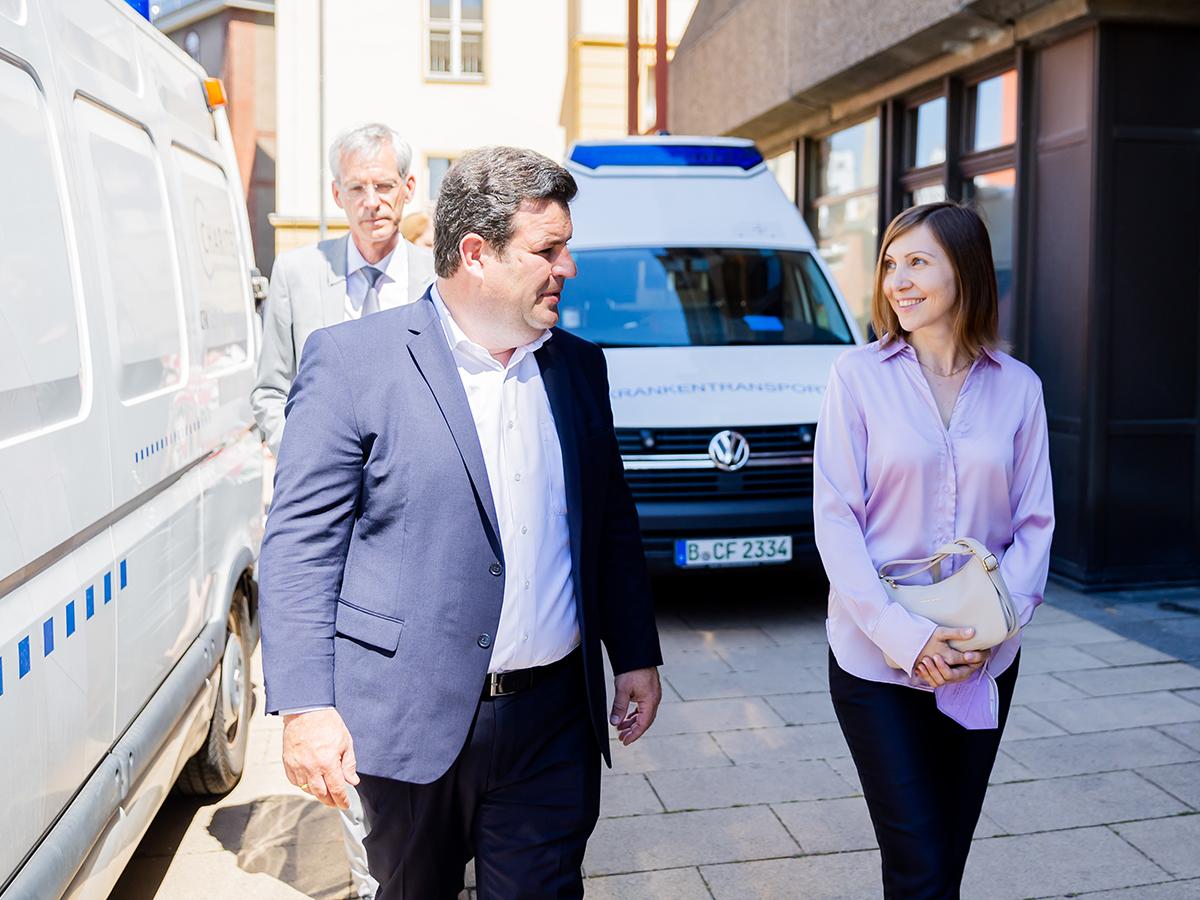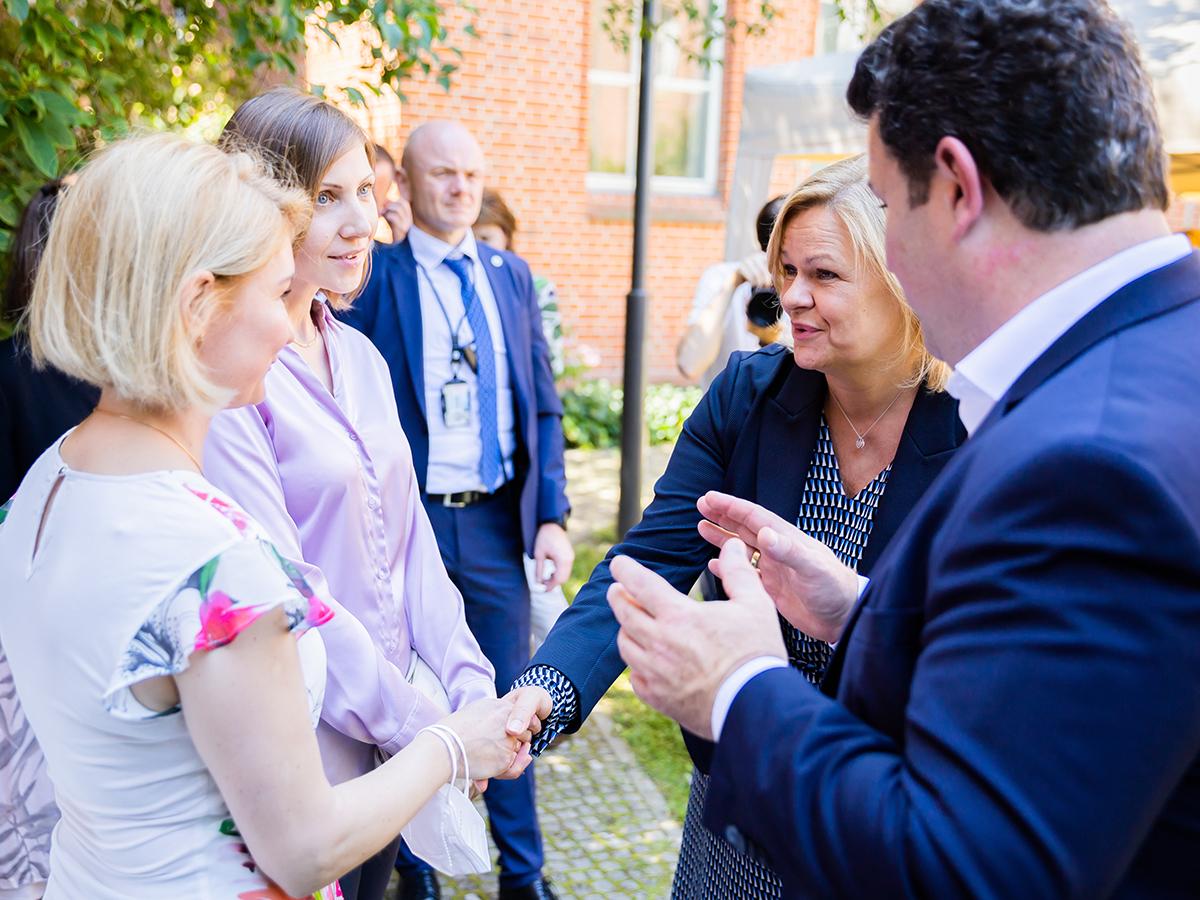Valentyna Mazhbits, born 1976, has a doctorate in psychiatry and psychotherapy. In March 2022, she fled with her two children from Ukraine to Germany. Her husband remained in Kyiv. In the Solomiya (‘Peace’) Hospital Partnership, she is now working at the Berlin Charité to coordinate the establishment of psychosocial support for people in her homeland. The Hospital Partnerships funding programme is financed by the German Federal Ministry for Economic Cooperation and Development (BMZ) and the foundation Else Kröner-Fresenius-Stiftung. It is implemented by the Deutsche Gesellschaft für Internationale Zusammenarbeit (GIZ) GmbH. There are 374 projects in 66 countries at the present time (as of September 2022).

‘The nation as a whole will need support’
Since fleeing to Germany, the Ukrainian psychiatrist and psychotherapist Valentyna Mazhbits has been working at the Berlin Charité for the Solomiya Hospital Partnership project to support psychiatric hospitals in her homeland (Solomiya means ‘peace’ in Ukrainian).
Ms Mazhbits, you are currently working at the Berlin Charité for the Solomiya Hospital Partnership project. How did this come about?
I left Ukraine in March 2022 with my two sons and our dog and initially stayed in a refugee hotel in Frankfurt. I began volunteering for the Solomiya project that very month. In June I moved to Berlin to work for the programme at the Charité. I am very glad to be able to support my country in this way.
What did you do before the war?
I was last working as an adult psychiatrist and psychotherapist at private hospitals in Kyiv and advised the International Organization for Migration, the IOM. I also worked as a senior researcher at the Institute of Psychiatry in Kyiv.

What is the situation like for the care of mentally ill patients in Ukraine now that almost a year has passed since the Russian invasion?
Basic medical care has been severely disrupted by the war. Many hospitals have been destroyed or damaged. There is a shortage of staff and medications. The same applies to psychiatric hospitals: they are over capacity, with many patients forcibly evacuated due to the war. Yet psychological assistance is more important at this time than ever. People don’t know what to expect the next day. They are worried about relatives, and many have lost everything. As a result, psychoses, stress disorders and other severe mental illnesses have increased.
How would you describe the mental health of people in Ukraine before the war?
As in any other society, there were people in Ukraine who suffered from depression or anxiety. Since the outbreak of hostilities in 2014, the number of such illnesses has risen. Generally, however, we led a normal life and did not think about war.
How many people in Ukraine need psychological support at the present time?
I think that the nation as a whole will need support to come to terms with the horrific experiences. Right now, psychological first aid is important to assist people in handling stress and avoiding burnout. In future, rehabilitation measures will be necessary to enable people to adapt to civilian life again. This is especially true for relatives of the deceased and military personnel and their families. Suicide prevention will be another major issue.
How do you assess the Solomiya Hospital Partnership?
The programme is the best thing that could have happened to us in this difficult time. I cannot express in words how grateful doctors in Ukraine are for the support. Especially since the situation is getting worse every day.
What does your work at the Charité currently entail?
We are primarily trying to meet the acute needs of hospitals in Ukraine. As a project employee, I am responsible for supplying them with medications. At the same time, we offer online training for medical and non-medical staff who need psychological first aid. It’s about assessing who will continue to need it. We are also developing an app with psychological educational content.

What are the biggest challenges in Ukraine at the moment?
The constant power outages and unstable internet in Ukraine are causing the greatest difficulties for us right now. That’s why we are also training trainers, who can then offer courses on the ground.
Are you the only Ukrainian working for the programme at the Charité?
We are a team of experts from Germany and Ukraine. Apart from me, there are three other professionals from Ukraine in our project.
What do you personally see as the most remarkable achievement since you joined the project?
I come from Kharkiv; my parents still live there. The city has suffered massive destruction in the war; the health care system is in a critical state. When we were able to deliver the first shipment of medication to the city, it was a very moving moment for me.

Further information online